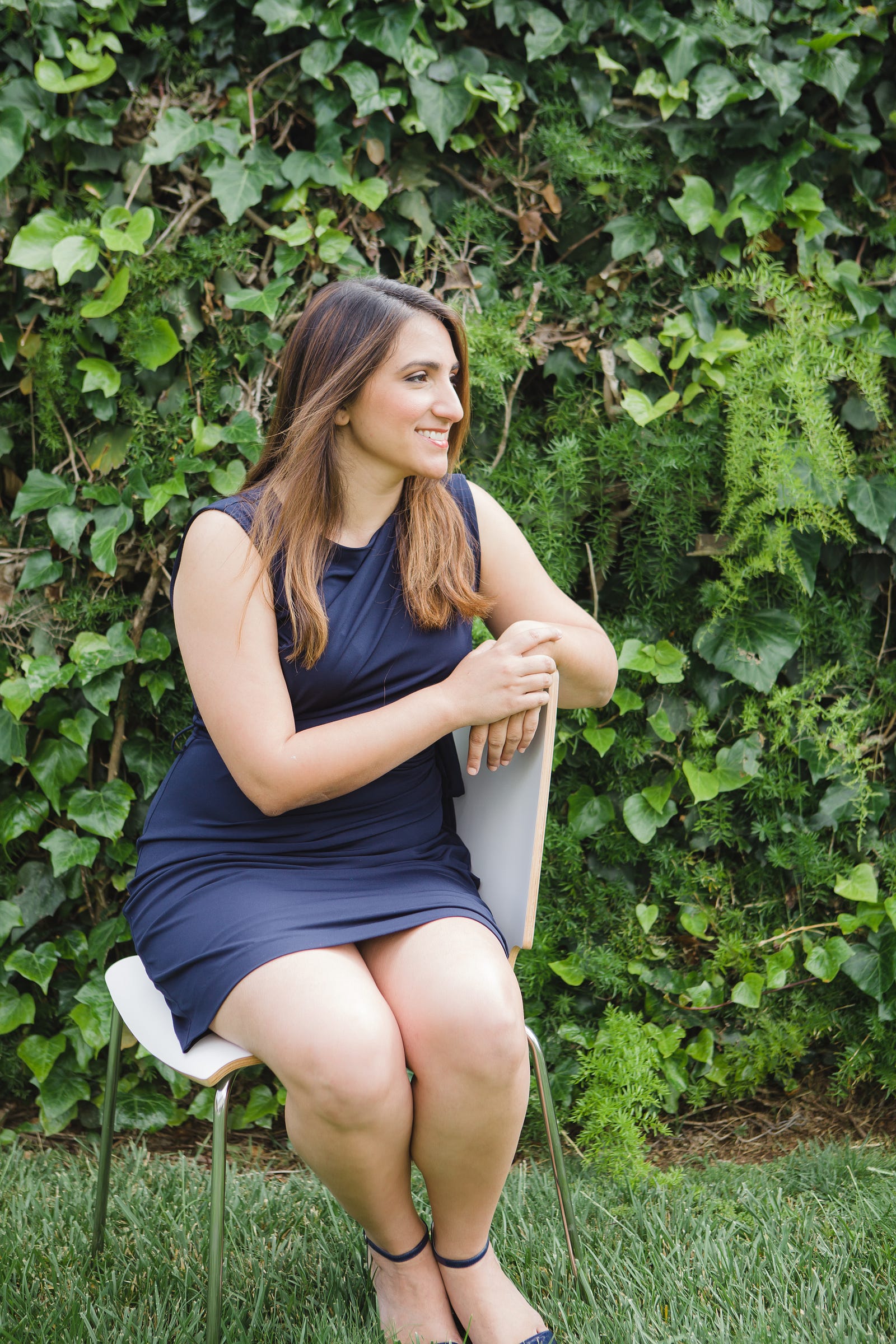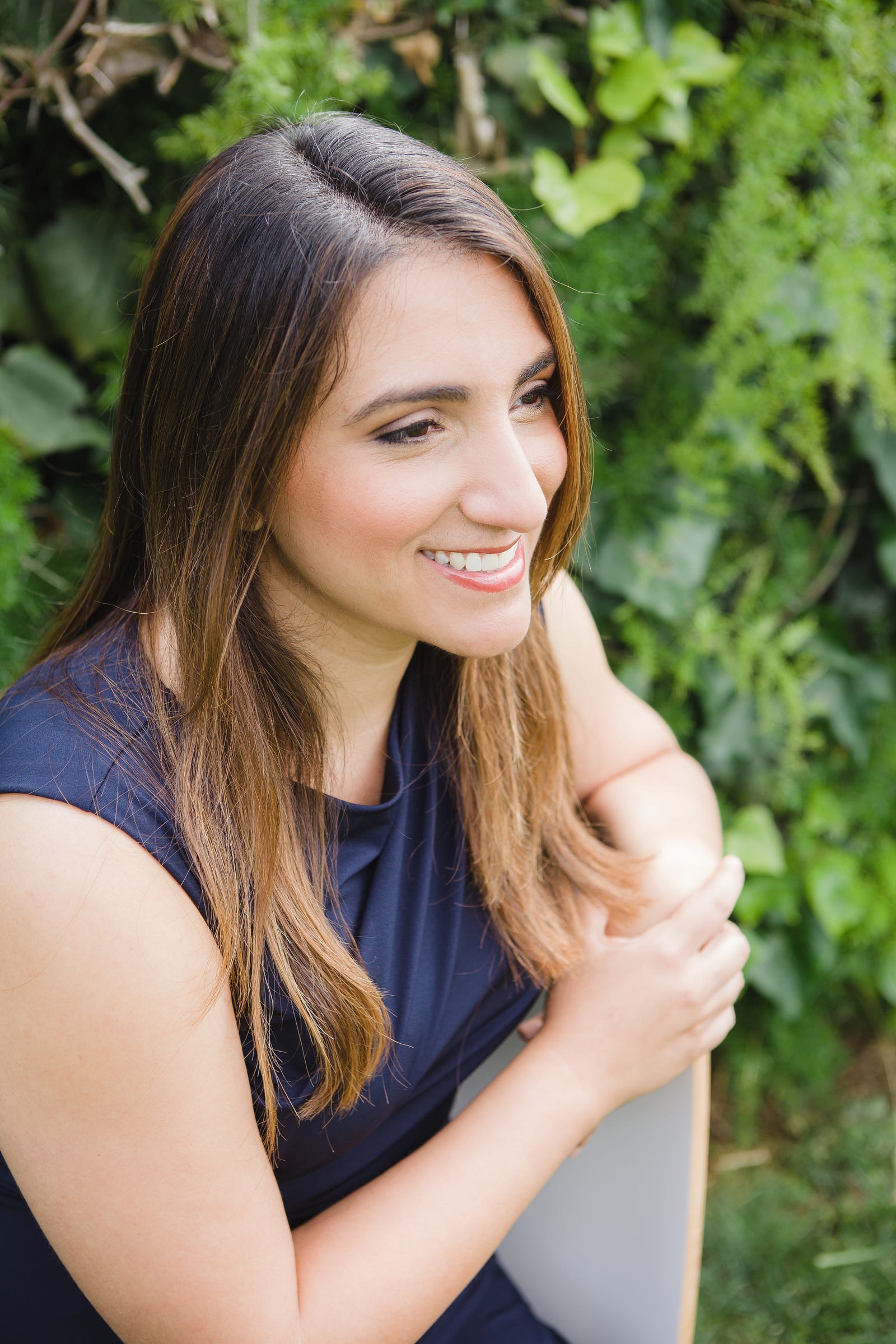As a part of my series about “Learning To Finally Love Yourself” I had the pleasure to interview Erika Martinez, licensed psychologist in Miami, FL. She specializes in the assessment and treatment of a variety of mental health conditions in young adults, professionals, and entrepreneurs. Combing her expertise in neuropsychology, assessment, trauma, and resilience, Dr. Martinez helps individuals facing quarter life crises, relationship meltdowns, and existential dilemmas which can present as a myriad of symptoms including anxiety, destructive behaviors, self-sabotage, depression, loneliness, burn out, poor self-esteem, shame, and impaired social skills.
Thank you so much for joining us! I’d love to begin by asking you to give us the backstory as to what brought you to this specific career path.
I was a bookworm as child, and one day I started reading one of my father’s graduate textbooks while we were in traffic. Innocently, I told him that it sounded like someone we knew had Borderline Personality Disorder. (Apparently, I was right and it really freaked him out.) It piqued my interest that people could be understood in the ways I’d read about. As I got older, I realized that psychology was the common denominator for many of the topics I enjoyed studying in school. I’ve been following the breadcrumbs ever since.
Are you working on any exciting new projects now? How do you hope that they might help people along their path to self-understanding or a better sense of wellbeing in their relationships?
Right now, I’m really excited about leading shame resilience workshops based on the research of Dr. Brené Brown. The first one is February 23rd. I’m also expanding my presence on Instagram. I think there’s a unique opportunity to connect with the public on that platform that I’m exploring.
Do you have a personal story that you can share with our readers about your struggles or successes along your journey of self-understanding and self-love? Was there ever a tipping point that triggered a change regarding your feelings of self acceptance?
For me, it’s been an amalgamation of small moments of insights that have paved my road to more self-understanding and loving myself. In some important respects, I had rough start in life and it negatively affected my self-understanding and self-love. I really believe that early childhood experiences and interaction convey important messages that color how you perceive yourself. After I got out of a yet another unhealthy relationship in my late 20s, I came across an article on attachment which made me curious. Learning more about attachment, attachment disorders, attachment trauma, etc. helped me realize the origins of my negative self-perception and lack of self-love, and how these were sabotaging my personal happiness. The more I learned, the more I understood myself and the more at peace I felt.
According to a recent study cited in Cosmopolitan, in the US, only about 28 percent of men and 26 percent of women are “very satisfied with their appearance.” Could you talk about what some of the causes might be, as well as the consequences?
Based on my experience working with clients, all forms of media play a huge role in people’s satisfaction with their personal appearance. People internalize the implicit messages of what an “acceptable” appearance is and feel dissatisfied when the reality staring at them in the mirror doesn’t align with editorial pages of magazines or the social media feeds of popular accounts. Society, culture, and even family reinforce these messages. The consequences are varied, but certainly eating disorders, addictions, over medication, perfectionism, anxiety, and depression are among the most prevalent.
As cheesy as it might sound to truly understand and “love yourself,” can you share with our readers a few reasons why it’s so important?
It’s not cheesy at all. I think the importance lies in that understanding yourself and loving yourself are foundational to having healthy relationships in all contexts of life. Otherwise, you’ll have this constant tension or feeling of unease that will be affecting (whether you realize it or not) your romantic relationships, how you raise your children, your interactions and decisions at work, how you run your business, setting boundaries, etc. It shows up everywhere! Becoming aware of it and understanding and accepting yourself puts you in the position to make an informed decision about whether to stay the same or if you need to change/grow.

Why do you think people stay in mediocre relationships? What advice would you give to our readers regarding this?
All kinds of fears. Most people will tell you they’re afraid they may not meet some else they like and that likes them back. They rather stay in what’s familiar and safe even if they’re unhappy. It feels easier and more comfortable. Part of that familiarity is that the relationship probably upholds that person’s beliefs about themselves that they learned growing up — that’s what they get out of it. It’s easier than the alternative of leaving which feels dangerous and chaotic. And to some degree it is because it forces you to go deeper with yourself, and some people would rather stay at the superficial level.
Advice is relative to the person’s circumstances, so it’s hard to offer in this context. The people that are likely to be reading this are probably the kind that already have cultivated some self-awareness. To them, I say keep reading, taking classes, going in retreats, and all the things that resonate with what feels true for you. Follow the breadcrumbs of your curiosity without judging where they may lead.
When we talk about self-love and understanding we don’t necessarily mean blindly loving and accepting ourselves the way we are. Many times self-understanding requires us to reflect and ask ourselves the tough questions, to realize perhaps where we need to make changes in ourselves to be better not only for ourselves but our relationships. What are some of those tough questions that will cut through the safe space of comfort we like to maintain, that our readers might want to ask themselves? Can you share an example of a time that you had to reflect and realize how you needed to make changes?
It really comes down to acting with integrity with your values, whatever those may be. If you don’t know your core values, then start by figuring what those are. Then you can ask yourself, “If no one else were watching or had an opinion, would I still make the same decision or say that?” If the answer is no, then you’re acting out of alignment of your values and perhaps it’s time to rethink your approach.
A time that stands out for me happened about 4 o5 years ago. I was unhappy with the administrative side of things at work, but I loved the actual work. I started to notice that I stopped caring about the quality of my work, which is very unlike me. I faced the hard decision of leaving work that I loved and afforded a comfortable living or remain knowing that I wasn’t doing my best work. In the end, I did the hard thing and left.
So many don’t really know how to be alone, or are afraid of it. How important is it for us to have, and practice, that capacity to truly be with ourselves and be alone (literally or metaphorically)?
Incredibly important. If you can’t be alone with yourself, how do you expect others to keep your company? You can’t give what you haven’t got.
How does achieving a certain level of self-understanding and self-love then affect your ability to connect with and deepen your relationships with others?
I think it makes you more likely to see the places others struggle with within themselves, and thus, be more compassionate with them. If they’re willing to engage with you about it, it can create more connection and emotional intimacy in a relationship. In some cases, you can help them on their journey and serve as a mirror for their blind spots, which very humbling and can lead to even deeper personal understanding in yourself.

In your experience, what should a) individuals and b) society, do to help people better understand themselves and accept themselves?
It would make it a lot easier if both individuals and society fostered less judgmental attitudes and expectations of what “should be done”.
What are 4 strategies that you implement to maintain your connection with and love for yourself, that our readers might learn from? Could you please give a story or example for each?
- Making time for myself. Time to pause, reflect, and connect the dots for more insight.
- Learning. I’m always reading, taking a class, and/or asking questions. I learn from anything that I consume, including movies, music, and TV shows.
- Listening and asking good questionsin conversations with people. You learn a lot about them, but also about yourself (i.e. are you spacing out, and if so, are you beating yourself up for not being a good listener, are you upset by something they said, why did that trigger you, etc).
- Finding and trusting my mirrors. There’s a handful of people that I turn to when my own mirror is dirty, and I don’t see myself clearly. So I talk to them, and I’ve learned to trust whatever they reflect back to me until I can get my mirror clear again.
What are your favorite books, podcasts, or resources for self-psychology, intimacy, or relationships? What do you love about each one and how does it resonate with you?
Lately it’s anything written by Brené Brown, Esther Perel, Irvin Yalom, and Dan Siegel. The Big Leap by Guy Hendricks is another book I re-read often. I love that each one presents information from a very different perspective which I find disruptive. It’s that disruption that gets me thinking.
You are a person of great influence. If you could inspire a movement that would bring the most amount of good to the most amount of people, what would that be? Maybe we’ll inspire our readers to start it…
Inspiring people to raise children that don’t need to recover from their childhoods as adults.
Can you please give us your favorite “Life Lesson Quote” that you use to guide yourself by?
Can you share how that was relevant to you in your life and how our readers might learn to live by it in theirs?
“Life begins at the end of your comfort zone.” ~ Neale Donald Walsch
This journey of understanding and loving myself has been very uncomfortable and difficult, but that’s where the growth happens. So find the parts of life where you’re feeling complacent and stuck, and stop doing what feels safe, comfortable, and easy. Do the hard, scary things that will help you grow.
Thank you so much for your time and for your inspiring insights!


